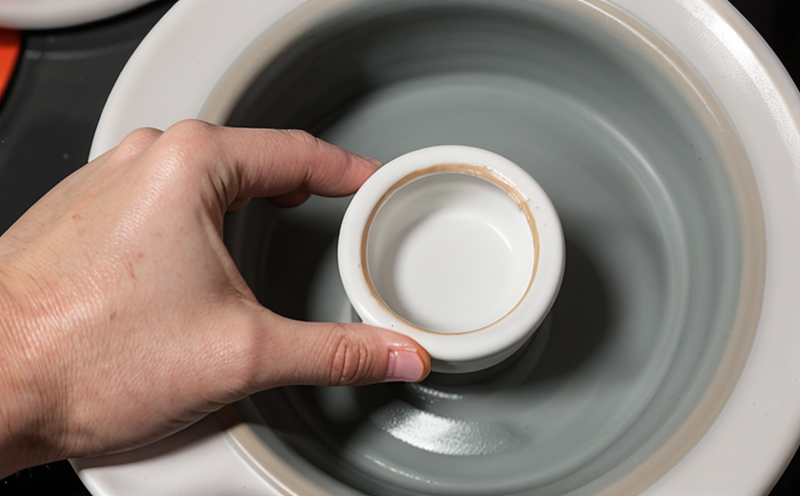ASTM C1424 Monotonic Compressive Strength of Ceramic Nanomaterials
The ASTM C1424 standard provides a robust framework for determining the monotonic compressive strength of ceramic nanomaterials. This test method is particularly significant in evaluating the mechanical properties of nanostructured ceramics, which are increasingly used in advanced applications such as aerospace, electronics, and biomedicine.
The process involves carefully preparing cylindrical specimens from the nanomaterials under study. These specimens undergo loading until failure to determine their compressive strength. The precision and accuracy of this testing are crucial for ensuring that ceramic nanomaterials meet required standards and specifications.
Compliance with ASTM C1424 is essential for quality assurance in industries reliant on the mechanical integrity of nanomaterials. This compliance ensures that products perform reliably under various conditions, which is vital for safety and performance in applications ranging from structural components to biomedical implants.
The test method also helps in identifying the optimal processing parameters for producing high-performance ceramic nanomaterials. By understanding how different variables such as particle size, distribution, and morphology affect compressive strength, researchers and engineers can optimize their manufacturing processes.
Furthermore, ASTM C1424 provides a standardized approach to testing that allows for consistent results across laboratories. This standardization is particularly important in the research and development phases where consistency of data is key to advancing knowledge and technology.
The test method also plays a critical role in regulatory compliance. Many industries have stringent requirements regarding material strength, and ASTM C1424 helps ensure that products meet these standards. This ensures not only product quality but also safety for end-users.
In summary, the ASTM C1424 standard is a cornerstone of nanomaterials testing, providing a reliable method to evaluate the compressive strength of ceramic nanomaterials. Its application in various sectors underscores its importance in ensuring high-quality and safe products.
Why It Matters
The significance of ASTM C1424 lies in its ability to provide accurate and reliable data on the compressive strength of ceramic nanomaterials. This is crucial for several reasons:
- Achieving Consistent Quality: By following this standard, laboratories can ensure that their test results are consistent across different batches and samples.
- Enhancing Product Performance: Understanding the compressive strength of nanomaterials allows for the design of products with improved mechanical properties.
- Ensuring Regulatory Compliance: Many industries have strict regulations regarding material performance, and ASTM C1424 ensures that products meet these standards.
- Promoting Innovation: By providing a standardized testing method, the standard facilitates research and development in nanostructured ceramics.
The results of this test are critical for industries such as aerospace, electronics, and biomedicine, where the mechanical integrity of materials is paramount. The accuracy provided by ASTM C1424 ensures that products perform reliably under various conditions, enhancing safety and performance.
Applied Standards
| Standard Code | Description |
|---|---|
| ASTM C1424 | Determination of Monotonic Compressive Strength of Ceramic Nanomaterials |
The ASTM C1424 standard is widely recognized and accepted in the industry. It provides a clear methodology for testing ceramic nanomaterials, ensuring that results are consistent and reliable.
Competitive Advantage and Market Impact
- Consistent Testing: By adhering to ASTM C1424, companies ensure that their products meet the highest quality standards, giving them a competitive edge in the market.
- Innovation Facilitation: The standard supports ongoing research and development, allowing companies to stay at the forefront of technological advancements.
- Regulatory Compliance: Ensuring compliance with ASTM C1424 helps companies avoid costly penalties and delays in product launches.
The ability to produce high-quality ceramic nanomaterials is crucial for maintaining a competitive position. By leveraging ASTM C1424, companies can ensure that their products are reliable and safe, which is essential for gaining and retaining market share.





